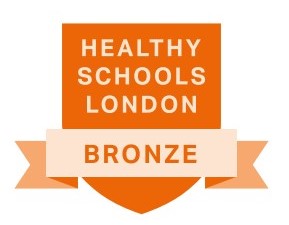Illness and Accidents
Guidance
It can be tricky deciding whether to keep your child off school when they are unwell. Children will display sickness in the evenings or mostly in the early morning as they wake up. Give your child time. Within an hour or so you will know if your child is able to come to school.
As the weather changes, children will develop common coughs and colds. This should not prevent your child from coming to school and if they continue to feel unwell, we will contact you straight away.
Not every illness requires your child to remain at home.
Ask yourself the following questions:
- Is your child well enough to do the activities during the school day? If not, keep your child at home. If they feel better during the morning, it is fine to bring your child in for the afternoon.
- Does your child have a condition that could be passed on to other children or school staff? If so, keep your child at home.
- Would you take a day off work if you had this condition? If so, keep your child at home.
Common conditions:
If your child is ill, it's likely to be due to one of a few minor health conditions. Whether you send your child to school will depend on how severe you think the illness is. This NHS guidance can help you make that judgement.
Remember: if you're concerned about your child’s health visit your local pharmacy or consult 111.
- Cough and cold.
A child with a minor cough or cold may attend school. If the cold is accompanied by a raised temperature, shivers or drowsiness, the child should stay off school, seek medical advice and return to school after they start to feel better. If your child has a more severe and long-lasting cough, consult your GP. Get more information for common colds. - Raised temperature.
If your child has a raised temperature, they should not attend school. They can return when they start to feel better. Learn more in Feverish illness in children. - Rash.
Rashes can be the first sign of many infectious illnesses, such as chickenpox and measles. Children with these conditions should not attend school. If your child has a rash, check with your Pharmacy or GP before sending them to school. - Headache.
A child with a minor headache does not usually need to be kept off school. If the headache is more severe or is accompanied by other symptoms, such as raised temperature or drowsiness, then keep the child off school and consult your GP if the symptoms continue. - Vomiting and diarrhoea.
Children with these conditions should be kept off school. They can return to school once the vomiting and diarrhoea has stopped. In most cases of vomiting or diarrhoea, children start to feel better without treatment, but if symptoms persist, consult your GP. - Sore throat.
A sore throat alone does not mean your child should be kept at home however if it is accompanied by a raised temperature, the child should stay at home.
You can read more about medicines for children's common health problems in Medicines for children.
You can also get help identifying common childhood illnesses by using the Childhood illness slideshow.
What to do if my child is too unwell for school?
It is important to inform the school if your child is going to be absent on the first day of your child's illness. Use the Studybugs app or telephone the school to report your child's symptoms. The school may ask you about the nature of the illness and offer advice. It is important that you continue to keep the school updated throughout your child's absence.
Administered Medication:
If your child is well enough to return to school after a sickness but has been prescribed medication a trained first-aider can administer this in school. You must visit the office and fill out a Parental Agreement for Medicine's Form stating the name of the medication, the dosage along with the timing of when this needs to be taken. The medication must be clearly labelled with your child's name on it. This information is very important.
Accidents In School:
If your child has an accident or develops an illness in school, the school will inform you of this. If your child has visited the first aid room, we will notify you via email. In some cases, due to some accidents or sickness, we may need to contact you during the school day. For head injuries, we will notify you by telephone and your child will be given a wristband. It is really important that you keep the school updated with your correct contact details in the event of an emergency.
If you change your phone number or address, please inform the office immediately.









